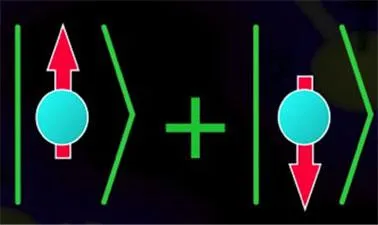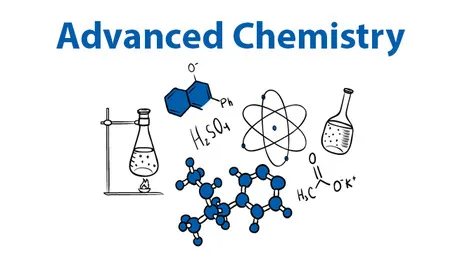
Free Chemistry Tutorial - Chemistry - Guided Memorization Nomenclature 
This free chemistry tutorial will help students learn the language of chemistry by memorizing 40 common elements, dozens of polyatomic ions, and their charges. Students will also be able to transform chemical formulas into substance names and names into chemical formulas. This course will make the memorization process enjoyable, effective, and long-lasting, and will help students understand the methods for solving issues relating to chemical reactions, oxidation and reduction processes, acid/base chemistry, and stoichiometry. ▼
ADVERTISEMENT
Course Feature
![]() Cost:
Cost:
Free
![]() Provider:
Provider:
Udemy
![]() Certificate:
Certificate:
No Information
![]() Language:
Language:
English
![]() Start Date:
Start Date:
Self Paced
Course Overview
❗The content presented here is sourced directly from Udemy platform. For comprehensive course details, including enrollment information, simply click on the 'Go to class' link on our website.
Updated in [May 25th, 2023]
Chemistry: Learners can gain a strong understanding of chemical nomenclature, including the ability to recall 40 common elements, dozens of polyatomic ions, and their charges, as well as the ability to transform chemical formulas into substance names and names into chemical formulas. This course also provides a foundation of language on which to build, making the tremendous amount of memorization enjoyable, effective, and long-lasting.
Watercolor Tutorial: Learners can learn the basics of watercolor painting, including color mixing, brush techniques, and composition. They can also learn how to create a variety of effects, such as washes, gradients, and textures. This course will also teach learners how to use watercolor to create beautiful and realistic paintings.
Free Chemistry Tutorial: Learners can gain a comprehensive understanding of the fundamentals of chemistry, including the periodic table, chemical reactions, and stoichiometry. They can also learn about the different types of chemical bonds, the properties of matter, and the structure of atoms. This course will also provide learners with the necessary skills to solve problems related to chemistry.
Guided Memorization: Learners can learn how to effectively memorize and recall information, such as chemical nomenclature, formulas, and equations. This course will also teach learners how to use mnemonic devices and other memorization techniques to improve their memory and recall. Additionally, learners can learn how to use visualization and other memory techniques to help them remember and recall information more effectively.
[Applications]
Students who have completed this course can apply their knowledge of chemical nomenclature to further their understanding of chemistry. They can use their newfound skills to more easily study the methods for solving issues relating to chemical reactions, oxidation and reduction processes, acid/base chemistry, and stoichiometry. Additionally, they can use their knowledge to better understand the language of chemistry and to more easily communicate with other chemists.
[Career Paths]
1. Chemist: A Chemist is a scientist who studies the composition, structure, and properties of matter. They use their knowledge to develop new products and processes, and to improve existing ones. Chemists are employed in a variety of industries, including pharmaceuticals, biotechnology, food and beverage, and environmental protection. With the increasing demand for new and improved products, the demand for chemists is expected to grow.
2. Chemical Engineer: Chemical Engineers use their knowledge of chemistry and engineering to design, develop, and manage processes for the production of chemicals, fuels, drugs, food, and other products. They are employed in a variety of industries, including pharmaceuticals, biotechnology, energy, and manufacturing. With the increasing demand for new and improved products, the demand for chemical engineers is expected to grow.
3. Environmental Scientist: Environmental Scientists use their knowledge of chemistry, biology, and ecology to study the environment and develop solutions to environmental problems. They are employed in a variety of industries, including government, consulting, and research. With the increasing awareness of environmental issues, the demand for environmental scientists is expected to grow.
4. Quality Control Technician: Quality Control Technicians use their knowledge of chemistry and laboratory techniques to test and analyze products for quality control. They are employed in a variety of industries, including pharmaceuticals, food and beverage, and manufacturing. With the increasing demand for quality assurance, the demand for quality control technicians is expected to grow.
[Education Paths]
1. Bachelor of Science in Chemistry: A Bachelor of Science in Chemistry is a four-year degree program that provides students with a comprehensive understanding of the fundamentals of chemistry. Students will learn about the structure of matter, chemical reactions, and the properties of elements and compounds. They will also gain an understanding of the principles of physical and analytical chemistry, as well as the principles of biochemistry. This degree is ideal for those who wish to pursue a career in the chemical sciences, such as research, teaching, or industry.
2. Master of Science in Chemistry: A Master of Science in Chemistry is a two-year degree program that provides students with an advanced understanding of the fundamentals of chemistry. Students will learn about the structure of matter, chemical reactions, and the properties of elements and compounds. They will also gain an understanding of the principles of physical and analytical chemistry, as well as the principles of biochemistry. This degree is ideal for those who wish to pursue a career in the chemical sciences, such as research, teaching, or industry.
3. Doctor of Philosophy in Chemistry: A Doctor of Philosophy in Chemistry is a four-year degree program that provides students with an in-depth understanding of the fundamentals of chemistry. Students will learn about the structure of matter, chemical reactions, and the properties of elements and compounds. They will also gain an understanding of the principles of physical and analytical chemistry, as well as the principles of biochemistry. This degree is ideal for those who wish to pursue a career in the chemical sciences, such as research, teaching, or industry.
4. Master of Chemical Engineering: A Master of Chemical Engineering is a two-year degree program that provides students with an advanced understanding of the principles of chemical engineering. Students will learn about the design and operation of chemical processes, the principles of thermodynamics, and the principles of process control. They will also gain an understanding of the principles of materials science, as well as the principles of process safety and environmental protection. This degree is ideal for those who wish to pursue a career in the chemical engineering field, such as research, teaching, or industry.
Pros & Cons

Great refresher

Buena

Very well done

Introduction to new material

Passive training

Active learning

Effective tool

Impressive quality

Well constructed

Easy to learn

Good for poor recall.

Hard to remember.
Course Provider

Provider Udemy's Stats at AZClass
Discussion and Reviews
0.0 (Based on 0 reviews)
Explore Similar Online Courses

Quantum Information Science II

How to create and join teams using Canva

Python for Informatics: Exploring Information

Social Network Analysis

Introduction to Systematic Review and Meta-Analysis

The Analytics Edge

DCO042 - Python For Informatics

Causal Diagrams: Draw Your Assumptions Before Your Conclusions

Whole genome sequencing of bacterial genomes - tools and applications

General Chemistry: Concept Development and Application

Advanced Chemistry


Start your review of Free Chemistry Tutorial - Chemistry - Guided Memorization Nomenclature